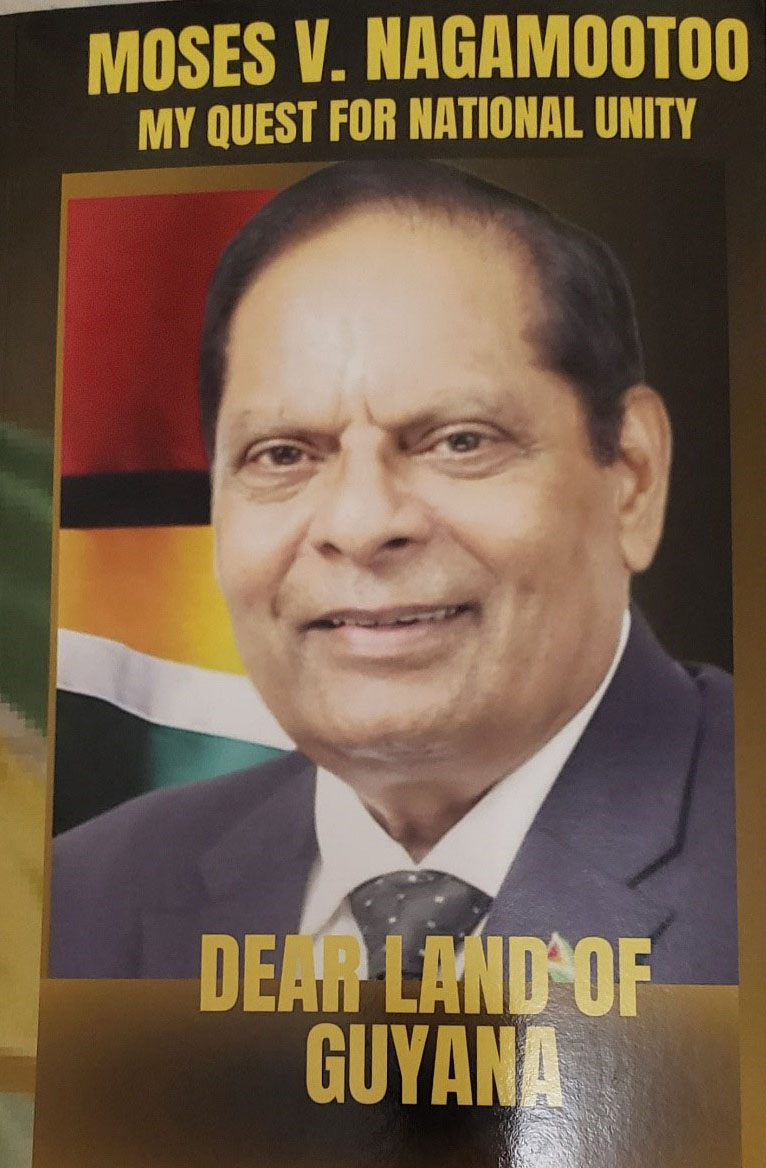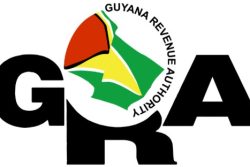Introduction
There are five parts to Nagamootoo’s Dear Land of Guyana but none of these identifies the theme or what the reader can expect of the chapters within those uneven parts. In the Preface the author writes rather casually about the clinching of the first petroleum agreement in 1999 and its “modification” in 2016, showing that he too did not then, or even now, understand the statutory framework governing the petroleum sector – made more regrettable coming from an attorney-at-law with years of practice. He wrote that in 1969, the PPP enlisted as a Marxist-Leninist party and that following the 1968 rigged elections, he supported its preparation “for all forms of resistance, including armed struggles”. He writes that after the death of Cheddi Jagan in 1997, the PPP began to lose its authentic democratic credentials and became tainted with corruption.
The Preface describes the swings of national political fortunes starting in the 2011 elections held shortly after Nagamootoo and his wife Sita exited the PPP/C and joined the Alliance for Change. Those elections saw the parliamentary defeat of the PPP after 20 years of unbroken rule, for which Moses took a good measure of credit. More was to come when four years later, by what he described as a strategic alliance of opposition forces, the PPP/C lost governmental power. That cycle continued in 2020 when according to Moses, the PPP was “installed into office”, although he did not say by whom.
Chapter 1 describes his unceremonious exit from the Prime Ministerial official residence that speaks to an unfortunate political culture that the winner must not only triumph, but the loser must be shamed into defeat. Chapter 2 gave an account of the recount by the CARICOM Team, the process of which was described “as transparent as could be expected though the same could not be said about the credibility of the ballots”, with over 7,000 claims being lodged about irregularities and anomalies.
Lingering doubts and the 2020 elections
Like Donald Trump in the USA, Moses still seems to harbour doubts that the Government – of which he was the Prime Minister – had lost the 2020 elections. Writing more than three years after the vote, stories that Guyanese “traveled from overseas on broomsticks, voted and mysteriously disappeared” seem too far-fetched to be taken seriously. Further theories advanced by the writer in the following chapter was that Washington had concluded that the Granger government had “become expendable” owing to its unwillingness to play along with the Americans as they sought the removal of Venezuelan President Nicolas Maduro in an “October Surprise”. The theory, coming from Guyana’s Prime Minister and First Vice President, however unsupported by any evidence, will no doubt generate some interest in Caracas.
One claim by the writer which appears to have been supported by empirical evidence, was the role of international elections mischief-maker Cambridge Analytica, which like the National Enquirer of the USA, will do anything for money – and in the 2020 elections they appeared to have done just that, having been paid tens of millions of dollars by the PPP/C. It is unclear why the writer did not link this to the absolute disregard for campaign financing rules which had been so stridently advocated by Sheila Holder, a founder member of the Alliance for Change.
In chapter 4 Nagamootoo writes that following the 2011 elections, Granger and other opposition leaders had met with president-elect Ramotar and proposed the formation of a government of national unity. According to the writer, Ramotar responded that the PPP had not included the formation of such a unity government in its manifesto, although that was probably not the real reason. What the writer fails to tell the reader is why Granger did not make a similar offer when he was in the driver’s seat. One possible reason is that all the cabinet positions had been allocated in the Cummingsburg Accord, the pre-election alliance arrangement.
The chapter also includes general stories about the internal politics within the PPP, such as Janet Jagan’s arbitrary and autocratic leadership style and the takeover of the Party by the Moscow-trained gang headed by Jagdeo following her death. Specifically, the writer sought to address the imbroglio concerning Cheddi Jagan’s reference to Moses as a capable person to succeed him as President, to which Janet Jagan took particular objection. The writer suggests that it was Jagdeo who caused the departure from the PPP of other stalwarts like Ralph Ramkarran and Khemraj Ramjattan and writes boldly of the huge scandal of Pradoville One and Pradoville Two. He describes the conversion of the government “into a sort of real estate agency, hiving off prime lands at basement prices, and building outlandish mansions.” It was quite surprising that he only indirectly identified the lead role played by Jagdeo in this wealth grab enterprise.
He noted that corruption became a way of life, spying and wiretapping being made legal, lies and slander against critics and members of the opposition, and concerns about whether the country “was only formally a democracy or was descending swiftly into an autocratic, authoritarian state.”
The Magnificent 7
Chapter five is more positive, hailing the seven AFC members elected to parliament out of the 2011 elections as the Magnificent 7. Writing with more than a touch of nostalgia, Moses referred to the big behind-the-scenes players like Dr. Asquith Rose, current GuySuCo CEO Sasenarine Singh, Bish and Malcolm Panday and Frank De Abreu and Robert Badal. Also recognised are several of his close friends from his PPP days and the dozens of AFC members, both local and overseas. Moses appears to take special delight in Raphael Trotman’s description of him as “the greatest strategist and nationalist”, and Freddie Kissoon’s naming him as the Guyanese personality for 2011 who had “taken his place in the history books” while featuring him in some most hagiographical terms.
Chapter 5 reported on the role played by the AFC in the post-2011 during which the AFC played a “constructive role” and appealed to the PPP/C minority government to pull back from the precipice of a stalemate caused by the continuing political apartness between the government and opposition. The chapter closed with the recommendations by the AFC for urgent and serious negotiations and for the parliamentary parties to embark on purposeful dialogue to find consensus on critical issues. Among those issues were the composition of all constitutional bodies, including the Integrity Commission and the Public Procurement Commission; confirmation of suitably qualified persons to fill the senior positions in the judiciary, the Police and the Office of the Ombudsman; respect for collective bargaining and across-the-board increases for teachers, nurses etc.; reduction of VAT by 2% and increases in the Old Age Pension.
Chapter 6 also dealt with the AFC’s role in the 10th Parliament and gave a good account of the circumstances surrounding to the Budget which reached the High Court, financial management and accountability, the threat by the PPP/C to derocognise its trade union arm (GAWU), the Skeldon “white elephant”, and the wider issue of governance.
Clearly, the book was setting the conditions for the 2015 elections.
To be continued







